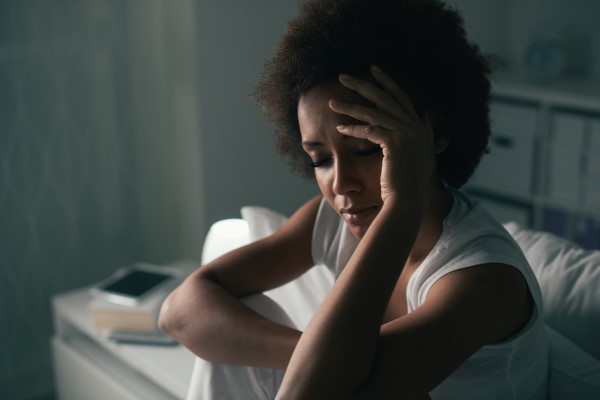Visit a Psychiatrist for OCD Treatment

While obsessive-compulsive disorder (OCD) can often feel overwhelming, it is possible to find relief from its symptoms. A psychiatrist can provide OCD treatment in a variety of forms. Whether you are looking to try medication, begin exposure and response prevention therapy, or are unsure where to start, a psychiatrist can help you find a treatment plan that works for you.
What is OCD?
According to the Diagnostic and Statistical Manual of Mental Disorders, Fifth Edition (DSM-5), OCD is defined as either having obsessions (recurrent, unwanted thoughts), compulsions (repetitive behaviors meant to get rid of the obsessions, prove them false, or otherwise neutralize them), or a combination of the two. A combination is the most common. The obsessions and compulsions must be time-consuming and harm the client's daily life to be considered OCD.
Obsessions can range from a fear of contamination to a fear of harming others, being in the wrong relationship, or acting immorally, among others. Compulsions may include touching items in a particular order, doing a task several times, asking for reassurance that obsessions are false or repetitive handwashing, checking, or praying, etc. It is not simply about wanting organization for one's possessions or routine.
OCD treatments from a psychiatrist
If a psychiatrist determines that a client has OCD, they may recommend a few types of treatment. The most common OCD treatment is a combination of medication and exposure and response prevention (ERP) therapy. However, if the client does not see their symptoms improve, the psychiatrist may recommend alternative treatments.
Medication
Prescription medication is a safe, effective way to manage OCD symptoms. It can reduce the anxiety associated with obsessions, making it easier to confront them in therapy and not respond to them in day-to-day life. A psychiatrist may prescribe selective serotonin reuptake inhibitors (SSRIs), antipsychotic medications, or tricyclic antidepressants. Citalopram, clomipramine, escitalopram, paroxetine, and sertraline are the most common.
ERP therapy
Exposure and response prevention focuses on helping clients overcome their obsessions by exposing them to whatever triggers them (such as a dirty doorknob). Once triggered, the client will then work to sit with the resulting anxiety until it fades. They will also either reduce the time spent on a compulsion, delay it, or forgo it altogether.
The end goal of ERP is to teach the client how to better respond to obsessions so that they can break the cycle of OCD. The more a person engages in compulsions, the worse the obsessions and compulsions become in the long run. This is because the brain will falsely learn that an obsession is a threat. Therefore, to manage OCD, the client will need to fight back against compulsions and remember that obsessions are not emergencies.
Transcranial magnetic stimulation (TMS) for OCD
Transcranial magnetic stimulation, or TMS, is a brain stimulation technique that uses magnetic coils and the brain's electrical activity to treat mental health conditions. The U.S. Food and Drug Administration has approved it as an OCD treatment. However, a psychiatrist is unlikely to recommend TMS before the client has tried ERP and medication. They may even recommend pairing ERP with alternative therapies before trying TMS.
Find peace from OCD
OCD may be a chronic, isolating mental disorder, but you are not alone. Our Houston psychiatrist will work to bring you relief with OCD treatment. Call today to schedule a consultation.
Request an appointment here: https://www.christiesfamilyhealth.com or call Christies Family Health LLC at (832) 915-1818 for an appointment in our Houston office.
Check out what others are saying about our services on Yelp: OCD Treatment in Houston, TX.
Related Posts
No one should have to live with symptoms of depression that hinder their ability to function normally or their overall level of happiness. Fortunately, talk therapy offers an effective treatment solution, particularly as part of a more comprehensive depression treatment plan.There is no cure for depression, but there are effective treatments available. Talk therapy is…
Prescription medicine may be life-saving for many individuals with depression. For depression treatment, a psychiatrist often gives prescription antidepressants like SSRIs. These drugs are helpful but can come with side effects and a high price tag, depending on the patient's health insurance plan.Prescription drugs are not the only option for treating depression symptoms. A natural…
Depression treatment includes various medication and therapy options. Psychiatrists may prescribe medications such as mood stabilizers, antipsychotics, and anticonvulsants to treat depression. They may also recommend therapy, electroconvulsive therapy (ECT), or transcranial magnetic stimulation (TMS).Let us take a look at some of the alternatives to antidepressants a psychiatrist might recommend:Depression is a mental illness that…
Non-invasive depression treatment is a great way to alleviate symptoms of depression safely. This review provides everything about non-invasive depression treatment options, including your options and how to choose the right treatment plan.Non-invasive depression treatment is a form of depression treatment that focuses on the safest possible treatments. Certain medications and procedures are often invasive…







